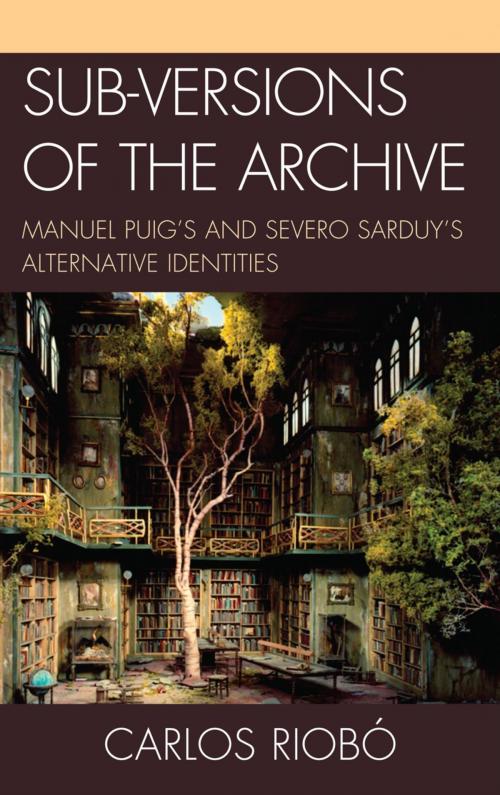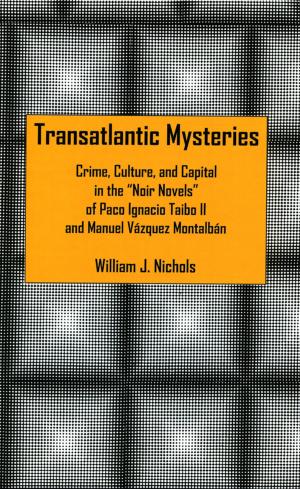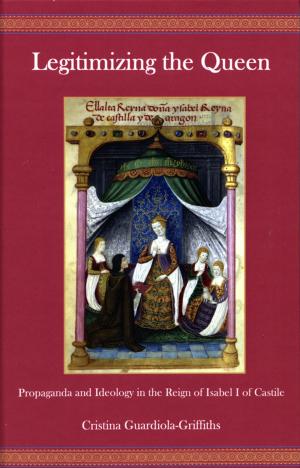Sub-versions of the Archive
Manuel Puig's and Severo Sarduy's Alternative Identities
Nonfiction, Reference & Language, Language Arts, Library & Information Services, Fiction & Literature, Literary Theory & Criticism, Theory| Author: | Carlos Riobó | ISBN: | 9781611480375 |
| Publisher: | Bucknell University Press | Publication: | December 29, 2010 |
| Imprint: | Bucknell University Press | Language: | English |
| Author: | Carlos Riobó |
| ISBN: | 9781611480375 |
| Publisher: | Bucknell University Press |
| Publication: | December 29, 2010 |
| Imprint: | Bucknell University Press |
| Language: | English |
Sub-Versions of the Archive: Manuel Puig's and Severo Sarduy's Alternative Identities analyzes recent theories of the archive to examine how Manuel Puig and Severo Sarduy reformulate the Latin American literary tradition. This study focuses on eclectic theories of the archive as both repository and danger, drawing from an array of sources both within and outside the Hispanic literary tradition: from Borges, Foucault, Arrom, Derrida, Gonz_lez Echevarr'a, and Guillory to digital media and biotechnology. This book also applies theories of cultural contamination (Maria Lugones) and symbolic capital (Pierre Bourdieu) to the novels of Puig and Sarduy to explore the representation of marginal cultures within a body of literature that previously altered or elided these subaltern cultures from the tradition. Through close readings and critical theoretical applications, this book demonstrates how archival fiction continues to be one of the most popular strategies among Latin American novelists and, most importantly, how they have successfully managed to find new ways to inscribe their alternative fictions within this tradition. Puig's and Sarduy's novels reproduce discourses-popular culture and the mass media-that lack prestige within the traditional archive. These discourses mirror realities of marginal groups-gay people, children, the poor, the illiterate, women, and racial minorities. Their cultural variants, sub-versions of hegemonic masterstories, are endowed with truth-bearing power for them, but were previously left out of the archive as legitimate novelistic models. To date, this is the only study of contemporary Latin American fiction that puts current theories of the archive-especially that of Roberto Gonz_lez Echevarr'a-to practice in such a systematic way. Riob-'s analysis of how Puig and Sarduy reformulate the Latin American canon is both a necessary complement of Gonz_lez Echevarr'a's work and an intelligent answer to the first of his projected masterstories. Riob-'s multidisciplinary approach offers a deep understanding and analysis of both the archive and of some of the Spanish language's most innovative and complex fiction.
Sub-Versions of the Archive: Manuel Puig's and Severo Sarduy's Alternative Identities analyzes recent theories of the archive to examine how Manuel Puig and Severo Sarduy reformulate the Latin American literary tradition. This study focuses on eclectic theories of the archive as both repository and danger, drawing from an array of sources both within and outside the Hispanic literary tradition: from Borges, Foucault, Arrom, Derrida, Gonz_lez Echevarr'a, and Guillory to digital media and biotechnology. This book also applies theories of cultural contamination (Maria Lugones) and symbolic capital (Pierre Bourdieu) to the novels of Puig and Sarduy to explore the representation of marginal cultures within a body of literature that previously altered or elided these subaltern cultures from the tradition. Through close readings and critical theoretical applications, this book demonstrates how archival fiction continues to be one of the most popular strategies among Latin American novelists and, most importantly, how they have successfully managed to find new ways to inscribe their alternative fictions within this tradition. Puig's and Sarduy's novels reproduce discourses-popular culture and the mass media-that lack prestige within the traditional archive. These discourses mirror realities of marginal groups-gay people, children, the poor, the illiterate, women, and racial minorities. Their cultural variants, sub-versions of hegemonic masterstories, are endowed with truth-bearing power for them, but were previously left out of the archive as legitimate novelistic models. To date, this is the only study of contemporary Latin American fiction that puts current theories of the archive-especially that of Roberto Gonz_lez Echevarr'a-to practice in such a systematic way. Riob-'s analysis of how Puig and Sarduy reformulate the Latin American canon is both a necessary complement of Gonz_lez Echevarr'a's work and an intelligent answer to the first of his projected masterstories. Riob-'s multidisciplinary approach offers a deep understanding and analysis of both the archive and of some of the Spanish language's most innovative and complex fiction.















